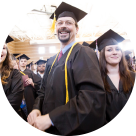Recently Visited Pages
Take advantage of this at-a-glance look at the pages on the SCC website you most often visit. Use this as a tool to navigate quickly to info you need the most. Take it one step further and click the star in the top right corner to ensure your favorite pages remain on your list of Visited Pages.
Philosophy
Apply Now!
Applying is easy! We have an open-admission policy, which means if you have a high school diploma or its equivalent, you’re in and we can’t wait to see you in the halls.
2023 Jazz Camp
This camp for middle and high school students features classes in jazz improvisation and ear training, as well as instrumental master classes. Big band rehearsals include rhythm sectionals and combos, and participants enjoy professional performances by the guest faculty each afternoon. June 11-16; Full Day Tuition-$399.
Philosophy
What is Philosophy?
Philosophy is a person's view of the world and his or her methods and policies for operating in the world. But if a person's views and methods regarding the world are inflexible and withheld from criticism, then they are not part of a process traditionally associated with academic philosophy.
Pythagoras, an ancient Greek thinker, conceived of philosophy as an ongoing adventure of an open and active mind. He coined the word philosophy from two Greek words for 'love' and 'wisdom' so as to represent, in one word, the "love and pursuit of wisdom" he saw manifested among the thinkers of his day. Philosophy, according to Pythagoras' view, is a continuing pursuit of the best theory of ourselves and the world and our appropriate role in that world, a theory that can be defended by plausible argument.
The Big Picture
The intellectual understanding sought by philosophy transcends natural science because philosophy asks questions science cannot answer. For example, "Is physical matter all there is to reality?" "What are the best methods and assumptions for doing science?" "What are the best standards for judging something morally right or wrong?" "What is the nature of beauty?"
Philosophical inquiry transcends other academic disciplines because it takes the discoveries and conclusions of all the disciplines and attempts to relate them into a "big picture" of the world. No other discipline has this as its goal.
One thing is for certain. Nobody can fully understand our contemporary Western culture unless the person understands the evolving philosophies that have shaped and are now shaping our world.
Seeking Wisdom
Knowledge is needed for the exercise of wisdom. The more knowledge we have, the more potential we have for the exercise of wisdom. But knowledge without wisdom is disastrous. Think of a precocious but immature child with a new chemistry set. Wisdom cannot be taught as if it were a mathematical formula. Wisdom is something we acquire on our own, through experience, acquisition of knowledge and reflective dialogue with other people.
Socrates advocated techniques we can use in our pursuit of wisdom. One of those techniques we now call Socratic dialogue. It has been helpful to thousands of people. Some of those people say it has fundamentally changed the way they think about themselves. They claim it has stimulated them into the most exciting adventure of their lives.
Practical Aspects of Philosophy
Much of what is learned in philosophy can be applied in virtually any endeavor. This is because philosophy touches on so many subjects and because the methods of philosophy enhance the study of any discipline.
The methods of philosophy include defining, analyzing, defending, organizing, distinguishing, specifying, communicating, persuading, critiquing, summarizing and problem solving.
Philosophy courses are good preparation for majoring in law, government, medicine, religious studies, political science, natural science and the arts (e.g., literature).









